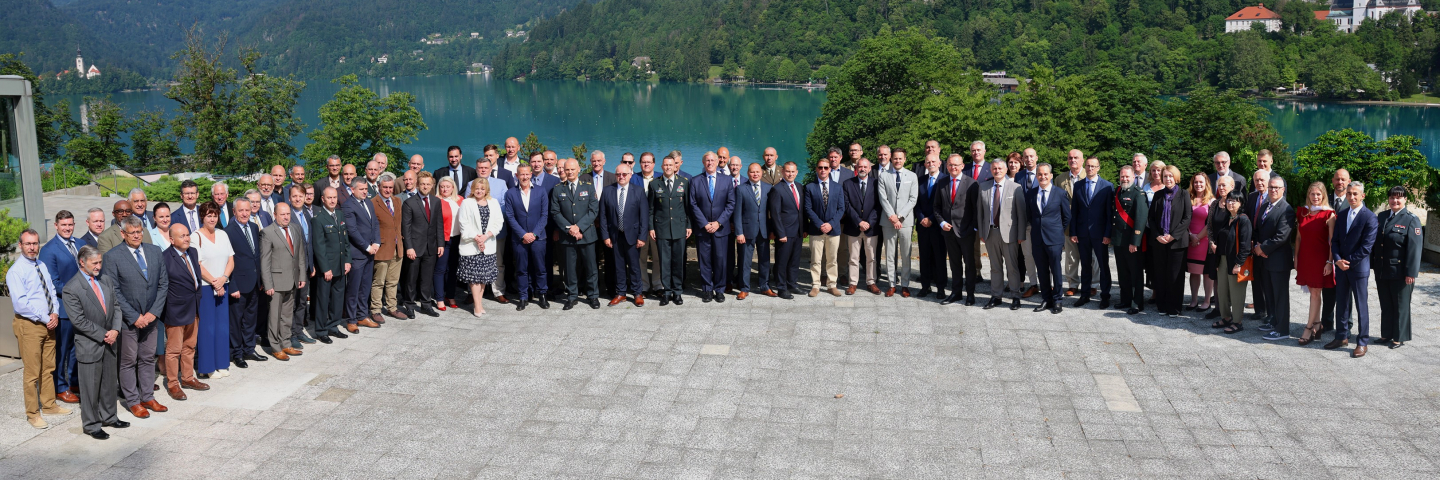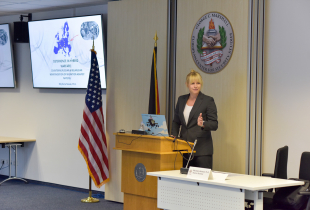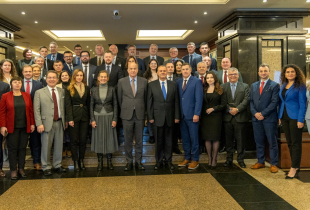
12th Annual Defense Education Enhancement Program Held in Slovenia
By Billy Glass, PfPC
BLED, Slovenia – The George C. Marshall European Center for Security Studies is supporting the 12th Annual Defense Education Enhancement Program's Multinational Clearing House, running June 19-23. This year’s Clearing House workshop, co-implemented by the Partnership for Peace Consortium and NATO International Staff, is hosted by the Government of Slovenia and brings together 107 delegates from around 23 NATO allied and partner nations.
The Clearing House was opened by the Chief of the General Staff of the Slovenian Armed Forces, Maj. Gen. Robert Glavaš.
“With a grave deterioration of the security situation in Europe after 2014, the importance of interoperability and professional military education in the alliance and in partner nations has become of crucial importance,” said Glavaš. “Only well-trained military personnel will be able to deal with current and future security challenges, and helping partner nations develop their professional military education must remain one of our most important goals.”
Mr. Piers Cazalet, the Director of Defence and Security Cooperation at NATO, reiterated the significance of "intellectual interoperability" among NATO and partner countries. In the aftermath of the 2022 Russian invasion of Ukraine, the need for NATO partners to operate in an interoperable manner with NATO forces has become even more vital.

Ukraine is an example of a country that has benefited from the assistance provided by the DEEP program in aligning its officer and non-commissioned Officer corps with NATO standards since 2014. Representatives from across the NATO alliance emphasized further the unique and critical role professional military education has in sustaining security cooperation investments in at-risk partner countries such as Bosnia and Herzegovina, Georgia, and Moldova.
Through the Multinational Clearing House, DEEP offers an invaluable platform for defense education reform implementers to share best practices. It encourages the development of the necessary skills and knowledge to improve interoperability and fortify partnerships between NATO allies and partner countries. The collective sharing of experiences and lessons learned at this event builds a strong foundation for defense education reform, promoting greater compatibility and cooperation within the NATO alliance.
With the participation of over 62 defense education institutions, the Clearing House illustrates the indispensable role of the DEEP initiative in driving institutional reform and modernization. It acts as a catalyst in aligning defense education needs, based on NATO partner DEEP requests, with the capabilities of professional military education institutions, ensuring a comprehensive and harmonized approach.
The commitment and dedication demonstrated by participants further reinforce their continuous support for DEEP programs. The event serves as a pivotal platform to secure further backing for existing programs and to investigate future projects in this crucial area of defense education reform.
The Marshall Center remains unwavering in its commitment to promoting intellectual interoperability. It provides ongoing logistical support and advocacy on behalf of the PfPC Secretariat for partner-requested DEEP engagements, ultimately enhancing our shared defense capabilities. Lessons learned from Ukraine in the development of western concepts of mission command and NCO leadership confirms the importance of intellectual interoperability with NATO and the transformative role that PME has in reshaping a partner’s military capabilities and resilience.


